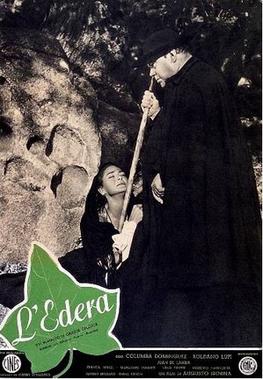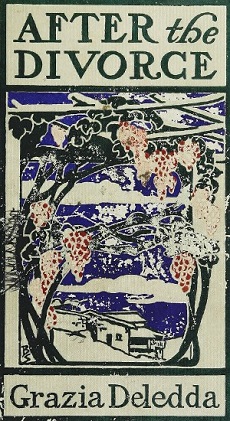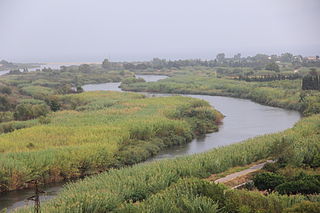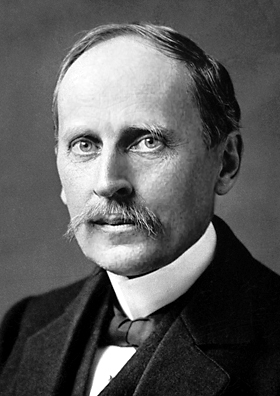
Grazia Maria Cosima Damiana Deledda was an Italian writer who received the Nobel Prize for Literature in 1926 "for her idealistically inspired writings which with plastic clarity picture the life on her native island [i.e. Sardinia] and with depth and sympathy deal with human problems in general". She was the first Italian woman to receive the prize, and only the second woman in general after Selma Lagerlöf was awarded hers in 1909.

Nuoro is a city and comune (municipality) in central-eastern Sardinia, Italy, situated on the slopes of Mount Ortobene. It is the capital of the province of Nuoro. With a population of 36,347 (2011), it is the sixth-largest city in Sardinia. Its frazione (borough) of Lollove is one of I Borghi più belli d'Italia.
Chiaroscuro, meaning "light-dark" in Italian, is the use of contrast between light and dark in art.
Sergio Atzeni was an Italian writer.

Cenere is a 1916 silent film directed by and starring Febo Mari. It is adapted from the 1904 novel by the Nobel Prize-winning Sardinian writer Grazia Deledda. It is notable as the only film performance by the Italian theater star Eleonora Duse.

Devotion is a 1950 Italian melodrama film directed by Augusto Genina.

Red Love is a 1952 Italian crime melodrama film directed by Aldo Vergano and starring Marina Berti, Massimo Serato and Guido Celano. It was shot at the Cinecittà Studios in Rome. The film's sets were designed by the art director Alberto Boccianti. It is an adaptation of the 1915 Sardinian-set novel Marianna Sirca by Grazia Deledda and is sometimes also known by this title. Location shooting took place around Aggius and Tempio in Gallura rather than the Nuoro setting of the novel. It was not a commercial success on its first release.
Cosima is a feminine given name.

After the Divorce is a novel by Italian author Grazia Deledda.
Edera or L'edera may refer to:

Flavio Soriga is an Italian writer.

Canne al vento is a novel by the Italian author and Nobel Prize winner Grazia Deledda. After being published by episodes on L'Illustrazione Italiana, in the period January 13–27, 1913, it was released as a volume by editor Fratelli Treves in Milan. It's considered the most notable work written by Deledda. The title of the book is an allusion to human frailty and sorrow, which was already found in Elias Portolu, written in 1900: Uomini siamo, Elias, uomini fragili come canne, pensaci bene. Al di sopra di noi c'è una forza che non possiamo vincere.

Ellen Rydelius was a Swedish translator and writer. She wrote a large number of guide books to major cities and several cookbooks but her major works are translations of Russian novels. In particular, she is remembered for her translation into Swedish of Fyodor Dostoevsky's Brothers Karamazov.
The Istituto superiore regionale etnografico is an institution based in Nuoro (Sardinia), established in 1972 by the Regional Council of Sardinia.

Isotta Gervasi was an Italian medical doctor, she was the first woman in Italy to work as a medical doctor. She worked in the Cervese area and, thanks to her determination to aid those in need, she acquired a legendary image over time, so much so that she was remembered as the "doctor of the poor" and the "angel on a bicycle". Grazia Deledda, a close friend of Isotta who was spending her holidays in Cervia, dedicated an elzeviro, an article in the third page of a newspaper, to her in Corriere della Sera in August 1935:
"The doctor is beautiful, elegant, in the evening she transforms like the fairy Melusina, with her clothes and her dazzling jewels and her eyes and teeth even more dazzling: a fairy is also so in front of the sick bed, whether a prince or a worker, to whom, in addition to her skilful care, she generously gives bottles of ancient wine, chickens and flowers. Her name is Isotta."
Marie Lera was a French journalist, novelist, and translator. She is best known for her book, Le secret des "Désenchantées". Lera died in 1958.

The Cedrino is a river that flows in the province of Nuoro, in central-eastern Sardinia. Grazia Deledda talks about the river in various novels, including Canne al vento.

The 1915 Nobel Prize in Literature was awarded to the French author Romain Rolland (1866–1944) "as a tribute to the lofty idealism of his literary production and to the sympathy and love of truth with which he has described different types of human beings." The prize was awarded the following year on November 9, 1916 and he is the third Frenchman who became a Nobel recipient for the literature category.

The 1926 Nobel Prize in Literature was awarded to the Italian author Grazia Deledda "for her idealistically inspired writings, which with plastic clarity picture the life on her native island and with depth and sympathy deal with human problems in general." She was the second Italian and second female Nobel laureate in literature.











